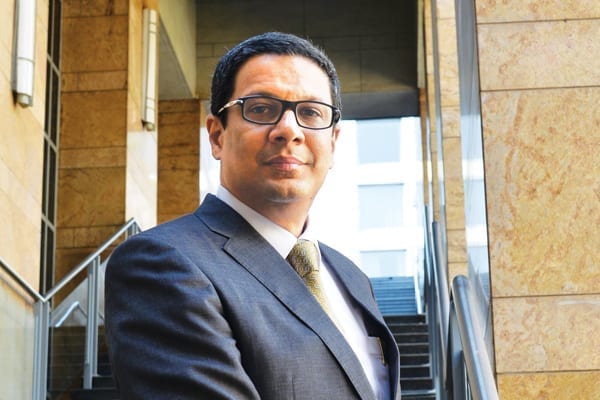More companies setting up Analytical Centers of Excellence (ACoE): Noshin Kagalwalla, VP & Managing Director, SAS Institute (India)
ACoEs are tasked to create business value by identifying areas where analytics can be applied across business functions of the organization and further owning the successful execution of the same along with the business function. Abhishek Raval speaks with Noshin Kagalwalla, VP & Managing Director, SAS Institute (India)
In India, is CIO still the decision maker for buying analytics solutions? Is there a function that holds equal weight with that of a CIO to make purchases?
Analytics has permeated the fabric of business and has impacted most business functions. Largely, the ownership of driving analytics within their business unit is a prerogative of the functional leader – whether it is the CMOs for Marketing Analytics, Supply Chain Head or Chief Risk officers for risk based compliance analytics, CFOs / CSOs for managing fraud based intelligence.
These are of course, ably supported by the CIOs. The functional heads would need to identify the kinds of information needed and how they want it delivered while CIOs have the major responsibility to put in place the right systems and governance mechanisms to make the information available and accessible in the right manner and own the implementation.
One of the trends we are witnessing is that organizations which are keen to take analytics to the next level are setting up Analytical Centers of Excellence. These ACoEs are tasked to create business value by identifying areas where analytics can be applied across business functions of the organization and further owning the successful execution of the same along with the business function. Consequently, we do see Chief Analytics Officers and Chief Data Officers in some of the larger, more mature organizations.
Which skillsets / sub-functions are in demand in the Analytics function?
The skills required would largely fall in 3 buckets:
Business Visualization Skills includes ability to showcase results to the business audience enabling them to take timely and correct decisions. Typical skills include knowledge of visualization. Products like Visual Analytics and domain expertise and skillset to lead analytical modelling results in actionable business insights.
Big Data Management Skills which includes managing technologies and techniques responsible for data capture, transfer, storage, and data processing for analytics. The skills encompass knowledge of the tools and products such as SAS, Hadoop and their integration with each other.
Analytical Skills: Includes the ability to analyse the data with speed and accuracy. Typical skills encompass knowledge of machine learning techniques (supervised and unsupervised), skills in data mining including predictive modelling and pattern recognition. We are definitely witnessing a shift towards an increasing demand for AI skills – which may include knowledge of Deep Learning Techniques, Computer Vision, Cognitive Computing. The demand from the industry has in fact prompted us to launch the ‘SAS Academy of Data Science’ which attempts to provide these skill sets through a comprehensive Data Scientist Course with industry recognized credentials.
Your assessment of the budgets allocated for Data Analytics in Indian enterprises, State Governments. What all comes under the Chief Data Officer’s function?
Well, the budgets often tend to vary widely with the size of the organization, maturity of the IT/ tech setup, industry legacy. Even that is dynamically changing – for example Government which would have been thought of as a laggard in technology (and most definitely in analytics), 5 -7 years back, has seen a paradigm shift and is now one of our top performing sectors as departments across the board have woken up to the potential of data and analytics.
As per a recent study by EY & Forbes Insights, Indian enterprises are outperforming their global peers in leveraging advanced analytics for driving business and have emerged as front-runners with evolved analytics strategies. The study noted that around 75% of companies surveyed would have invested $10 million or more for data and analytics resources.
So with these kind of results, it clearly emerges that there is a growing financial commitment to data and analytics and the conversations have moved from the backroom to the boardroom.
To support this fact, the report also states that 34% of Indian organizations cited advanced analytics plans being viewed as a strategic priority, edging out the 30% of global peers that share this viewpoint. 26 % of Indian executives also credited analytics with transforming their business strategy which again points to the value that organizations are seeing from analytics. With transformative technologies such as AI, Machine Learning and IoT already being hot topics of discussion in governments and corporates alike, we can safely assume that the commitment to analytics is only going to increase.
How many new customers have you added in India since SAS Forum India 2017? Please give sector breakup
SAS has experienced significant growth in India, to the extent that its today one of the fastest growing countries in APAC. We have added a number of new clients across each of our core industries, however, as a privately held organization, we cannot disclose the exact number. Banking and Financial services have seen strong growth, followed by Government (both Central and State), Manufacturing, Utilities and Telecom too have seen good growth.
Are you planning any acquisitions? How much SAS has allocated for inorganic growth?
Some software vendors make acquisitions to buy customers and market share. SAS only looks to acquire industry domain or technology expertise that allows us to expand into new markets. We have the technology necessary to handle industry’s toughest issues and work proactively to build out capability ahead of the curve – not merely reacting to current hot spots.

